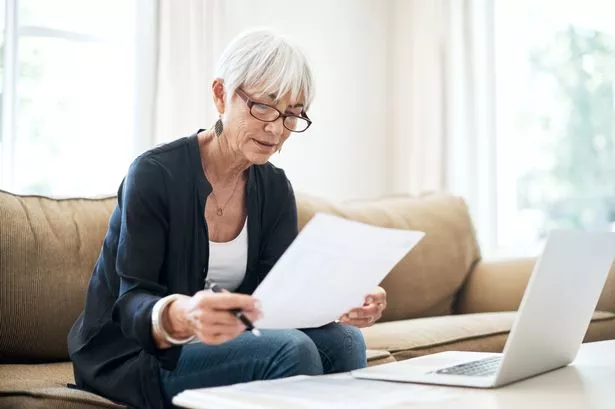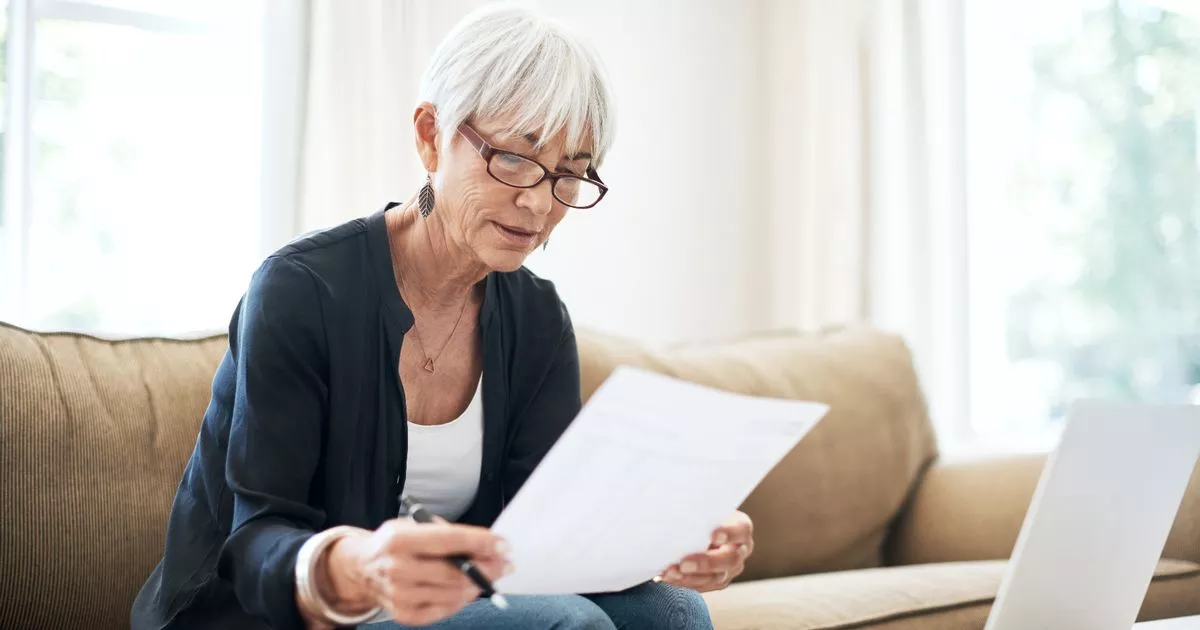Many older women may be due thousands of pounds in arrears because their National Insurance records are incorrect Many pensioners may be owed money due to a historical error(Image: Getty Images)
Many pensioners may be owed money due to a historical error(Image: Getty Images)
Older women are being urged to check if they are owed any money from the Government due to a historical error. Some pensioners may be owed back payments of around £8,300.
Data from the Department for Work and Pensions (DWP) shows that between January 8, 2024, and March 31, 2025, a joint State Pensions corrections exercise with HM Revenue and Customs (HMRC), identified 12,379 State Pension underpayments to women whose National Insurance (NI) records are incorrect. In 2022, the DWP became aware of a number of cases where it appeared that historic periods of Home Responsibilities Protection (HRP) were missing, leading to inaccurate State Pension payments.
So far, around £104 million in arrears have been paid out, with an average payment of £8,377. Retirement expert Helen Morrissey is urging older people to complete an online form or contact the Pension Service if they think they have been affected. This comes as the Government confirmed exactly who is eligible for the Winter Fuel Payment this year, as reported by ChronicleLive.
New research from the DWP has showed the main reasons why those who have received a letter from HMRC asking them to check their State Pension – as it could be wrong – have failed to do so. HMRC has sent out more than 370,000 letters – mostly to women – urging them to check their State Pension payments as they may be lower than they are entitled to.
However, the DWP research indicates that the majority of people contacted by letter did not go on to apply for HRP. Barriers included – not understanding the letter, thinking the communication was a scam, and reliance on digital methods to put in a claim, reports the Daily Record.
HRP was a scheme designed to help protect parents’ and carers’ entitlement to the State Pension and was replaced by NI credits from April 6, 2010. HMRC is using NI records to identify as many people as possible who might have been entitled to HRP between 1978 and 2010 and have no HRP on their NI record.
After May 2000, it became mandatory to include a NI number on claims so people claiming after this point will not have been affected. The head of retirement analysis at Hargreaves Lansdown said: “This research lays bare the complexities the government faces in resolving the long running issue of underpaid State Pensions.
“The State Pension system has become so confusing that even when the UK Government has communicated with those who may have a claim, the complexity and jargon has put many of them off. This means many thousands are getting less than they are entitled to.
“Issues identified by the government include the use of jargon. Many simply didn’t understand what was being asked of them – that mistakes made decades ago had been identified and could be rectified. Terms such as Home Responsibilities Protection haven’t been used for many years – it’s understandable that people may have little recollection as to whether they claimed it or not.
“The reliance on online forms to claim refunds was also a significant barrier, with many not feeling internet savvy enough to navigate the system without help.” Helen Morrissey continued: “Notably many people decided not to take action because they feared doing so might actually reduce their State Pension or they were scared that they had been targeted by scammers.
“It’s clear the government faces an uphill battle if it is to successfully reunite those affected with their extra pension payments. The introduction of the New State Pension system in 2016 was meant to simplify things – and it should, but again challenges remain for these younger groups. Those who opted out of Child Benefit because of the High-Income Child Benefit Charge will not have known that by doing so they risk missing out on National Insurance credits towards their State Pension.”
The UK Government has put measures in place to deal with this, but Ms Morrissey warns it remains something that can “trip people up and so awareness needs to be raised on an ongoing basis”. The retirement expert added: “Encouraging people to check their State Pension record to see if there are any gaps is vital – if there are mistakes, then they have time to correct them.
“If the gap has occurred during a period of time when they qualified for a benefit, such as Child Benefit, then they can backdate a claim and get the gaps filled for free. There’s also the option of paying for voluntary contributions to make sure you get the most from your state pension.” More details can be found on the Government website here.

